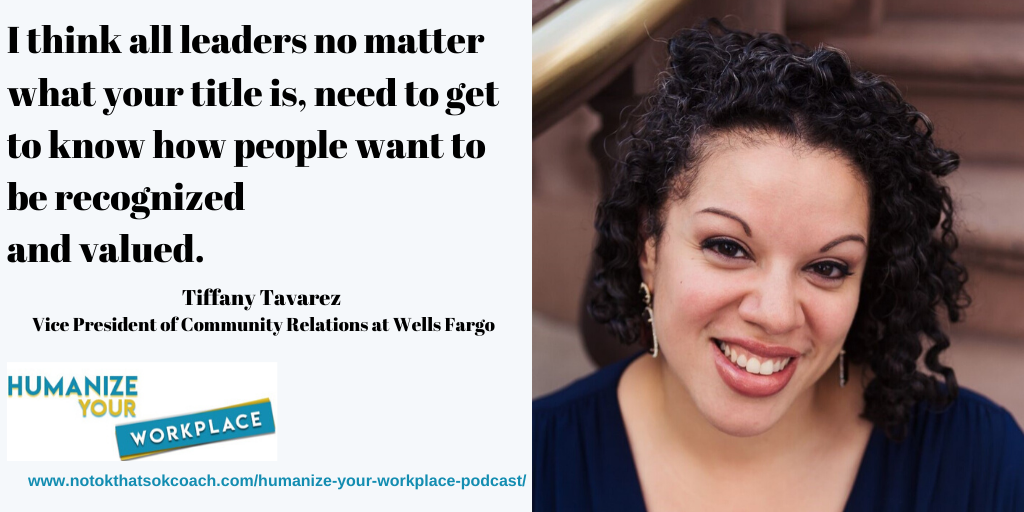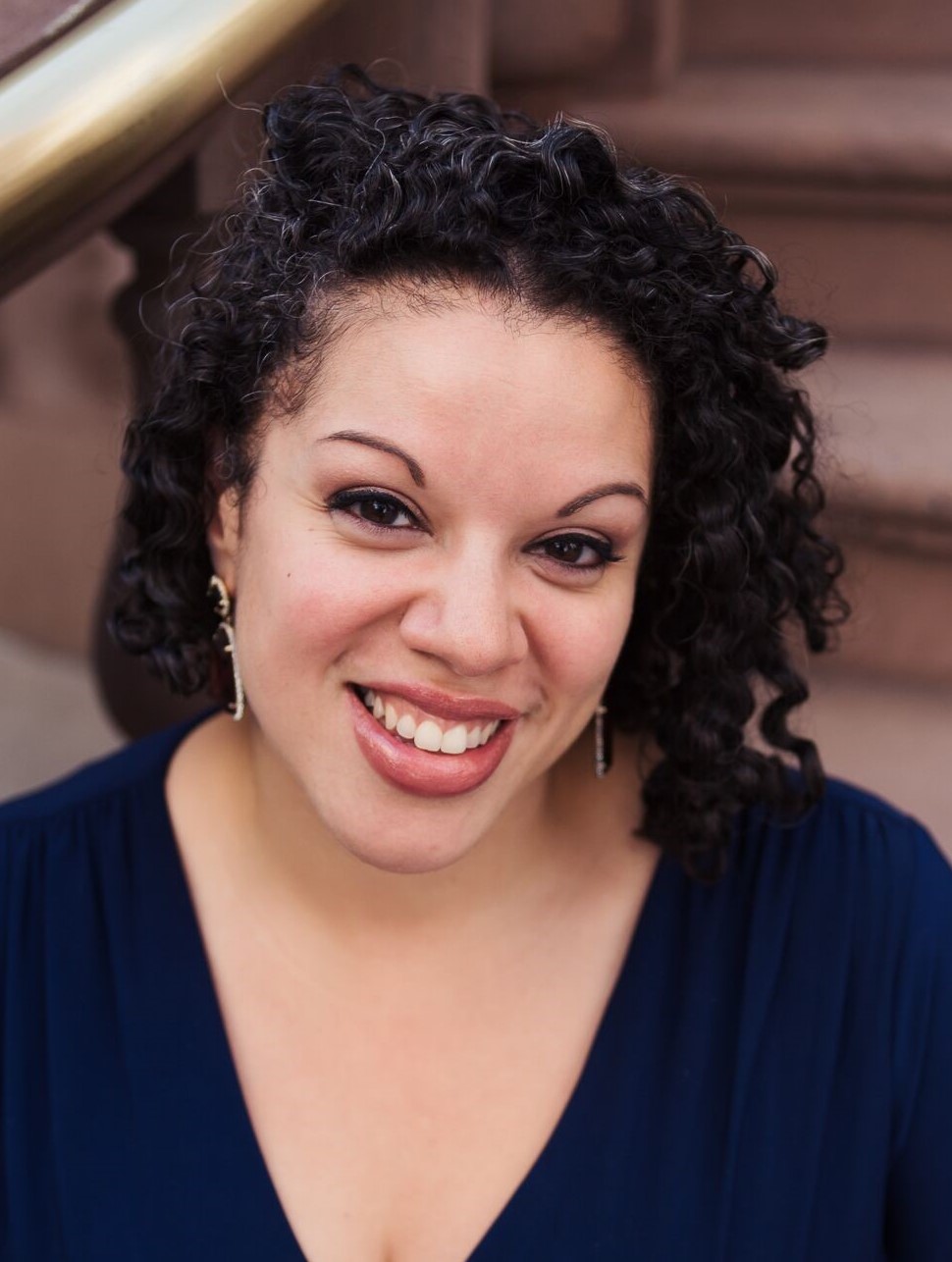In my interview series with leaders who are making a difference, I had the opportunity to interview Tiffany Tavarez. Tiffany serves as Vice President of Community Relations at Wells Fargo where she implements the company’s corporate responsibility priorities through strategic philanthropy, stakeholder engagement and team member volunteerism across the Northeast (PA, NY, NJ, DE, CT). Her career in community relations has included reputable organizations such as PECO/Exelon, Comcast, Temple University, First Person Arts & the Pew Center for Arts and Heritage.
Numerous organizations throughout the region have recognized her work; some highlights include Philadelphia City Council, LEADERSHIP Philadelphia, IMPACTO, Femme & Fortune, Hispanic Media LLC, Friends of the Urban Affairs Coalition & the United Way of Greater Philadelphia & Southern New Jersey. In 2018, the Forum of Executive Women presented her with the Emerging Leader Award and most recently, she was named in the Philadelphia Business Journal’s 2019 Top Forty Under 40.
Tiffany Tavarez serves on Governor Tom Wolf’s Pennsylvania Commission for Women; Vice Chair, Board of Directors of the Philadelphia Mural Arts Program and Esperanza; Chair of the Monument Lab Advisory Board and Member of the Temple Contemporary Advisory Council. She is a first-generation college graduate who has earned degrees from both Temple University (B.F.A.) and University of the Arts (M.A.).
If you could thank someone for helping you become the professional you are today, who would it be and why?
I always say behind a really great story is someone that inspired them to start doing the telling. The first person for me is my mother. She is an extremely amazing strong woman who really taught me a lot, oftentimes directly like “Hey, Tiffany this is a lesson.” But to be honest most of the lessons that I learned were things that I think were implied or sometimes just indirectly taught to me that she wasn’t aware of. And not until later as I became an adult and our relationship evolved did she realize all of the other things she taught me.
Outside of my mother the first person outside of my family that saw and recognized me as someone who was trying and acknowledged that would be my art teacher from high school. She used to tell me “Tiffany, I don’t know if I could say that you’re the smartest kid I ever met or the most talented. You know I’m an educator and I love so many kids, I can’t say that. But you’re definitely one of the most hard-working.” That always stuck because often you’re going to meet people that have talent, certain skills and attributes that may come naturally to them but it’s really about the application and the effort behind it that really makes a difference.
What can we as individuals do to bring up those people who are hustling and are making an impact but not being seen or acknowledged?
Recognition comes in a lot of forms and can be received several different ways. I think that as much as they’re diverse people in our environments, there are several diverse ways to recognize those people the same way.
When I’m accepting an award, I’m really thinking about the hundreds of thousands of people in our communities all over the world who will never get recognized. They have just been doing the work whether it be for a cause, on behalf of protecting certain people or certain a place. I take it seriously because not only am I lucky enough to do the work and get recognized, but I’m also at a place where people can see that and oftentimes the people doing that work don’t get seen.
I think all leaders no matter what your title is, need to get to know how people want to be recognized and valued. I think there’s sometimes an assumption that we all want our face and name printed somewhere or we want this big email blast. There are some people who just don’t want that, and it makes them uncomfortable.
It’s about how people like to be loved and prefer to be received. I think that alone is honoring someone and is the beginning of that value. It’s saying that this person is not just trying to show me love, but they’re doing it in a way that I understand and want to receive it.
Secondly, I may not have the capacity to give out personal awards, but the opportunity for development (formally or informally) is a very easy thing to do. Even if it’s making a connection for someone. It shows that you’re making an investment in them and that you’re willing to put your reputation and your relationships out there in order to leverage someone else’s lift.

Can you talk a little bit about cost versus value when it comes to recognition?
I’m a big fan of thank you notes, and I write dozens on a monthly basis. Those little notes make a difference. One of my favorite things I love to bring up and talk about is cost versus value. So, think about the cost of a card and the cost of a stamp. I would say the value is way past the cost of those items. And so, for me I always want to ensure that the value is much greater than what it’s costing me.
When people feel stuck, they feel uninspired and sometimes they even feel angry or resentful. I think when that happens there needs to be some serious evaluation of how to adjust your life portfolio. Whether it be and things that you’re doing, places you’re employed, or relationships you have. I try to make sure that no matter how stressful or crazy things could be, that people are recognized. At the end of the day at least I can go to sleep knowing that everything that I’m doing and everything that I have and strive for that the value is much greater than everything that’s costing me and that’s a privilege.
Does everyone have the opportunity? In, no way shape or form is that true. So, the least I can do is to ensure that I’m fully capitalizing on that so that way none of this occurs in vain and that my mother’s struggle or my family struggle was worth something.
I really like your work/life balance analogy, can you share it?
I think the idea of work/life balance is inaccurate, unfair and just ridiculous. I like to picture it like a lane street and that you are the car. And so, no one ever in life can simply drive in one lane. You move lanes according to what’s needed, but more importantly they are running parallel to one another going the same direction.
When you think about the scales, they imply that one of them stops when another one is a priority and that doesn’t happen. Both things keep moving all the time and so for me when I think about my personal reputation, they’re on the same line and both impact one another.
You talk a lot about the power of personal narrative. Can you tell us a little bit more about what that is?
How we interact with people and how we even complete our work professionally is directly correlated to our personal habits and beliefs. The personal narrative is about your story. For instance, if the word “value” really resonates with you it’s not just because you could recall the day that you looked it up in a dictionary and you learned the word. There was a personal experience or story, not a judgment of positive or negative, that taught you what that word meant. When people use that word again in a professional or a personal setting that could be a trigger word for you because it’s not just going back to the definition of the word, it’s going back to the experience and to the particular story that really informed how you understand that word and more importantly how you translate that word for others.
I’ll give you a word that means a lot to me that’s tied to a personal narrative, ‘audacity’. In third grade, my art teacher did not appreciate what I was drawing, and I remember I was so proud of this image. My teacher said something to the effect of “how dare you draw that picture and how dare you use those colors.” And she was punishing me for having imagination. But right before I got kicked out the classroom, she said ‘the audacity.’ And so, for me when I hear the word ‘audacity’ I think about the meaning of my story.
If I’m on stage and I can share what motivates and inspires me, the word ‘audacity’ comes to mind. I talk about how it can be perceived as negative and how I was able to turn that to something positive. Because I easily could have never drawn a picture again. I could have easily taken that educator’s judgment and never colored outside the lines.
Sometimes you may have a mentee, employee, neighbor, or coworker and realize this word is important, scary, or is a trigger to them. You may want to find out the story behind it. It’s the language behind the stories and how we experience things. Because our definition is going to inform how we define it for others and if we are never clear on how we define it for ourselves, we’re never going to be clear on how we define it for others.


